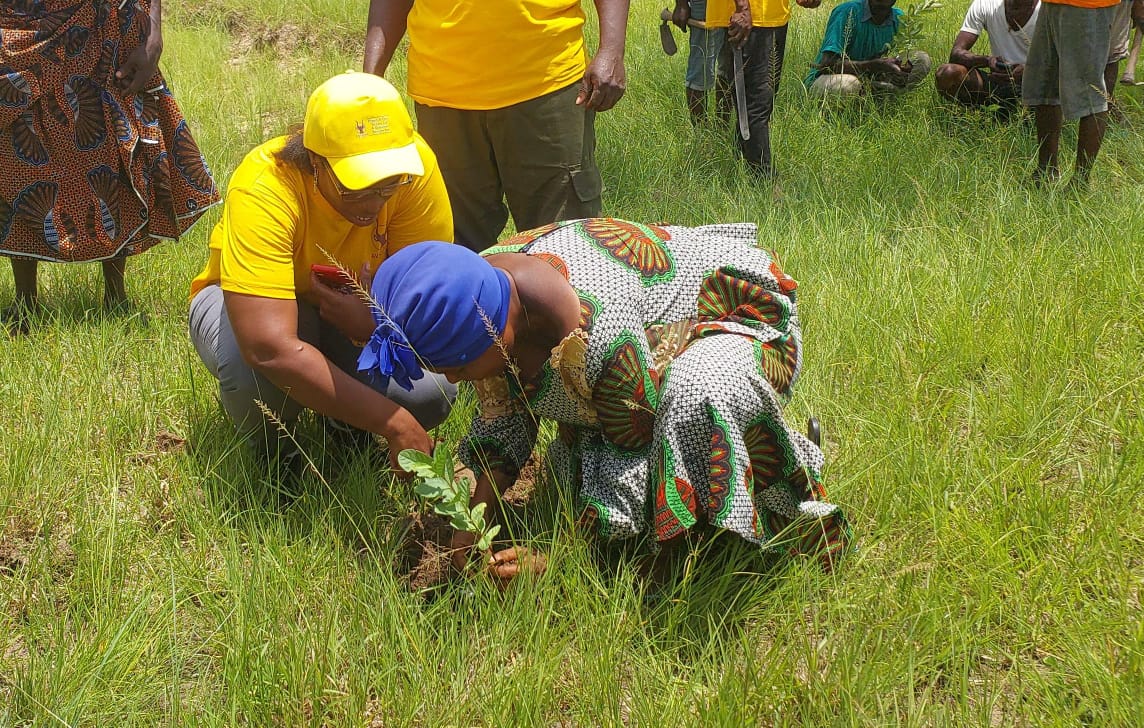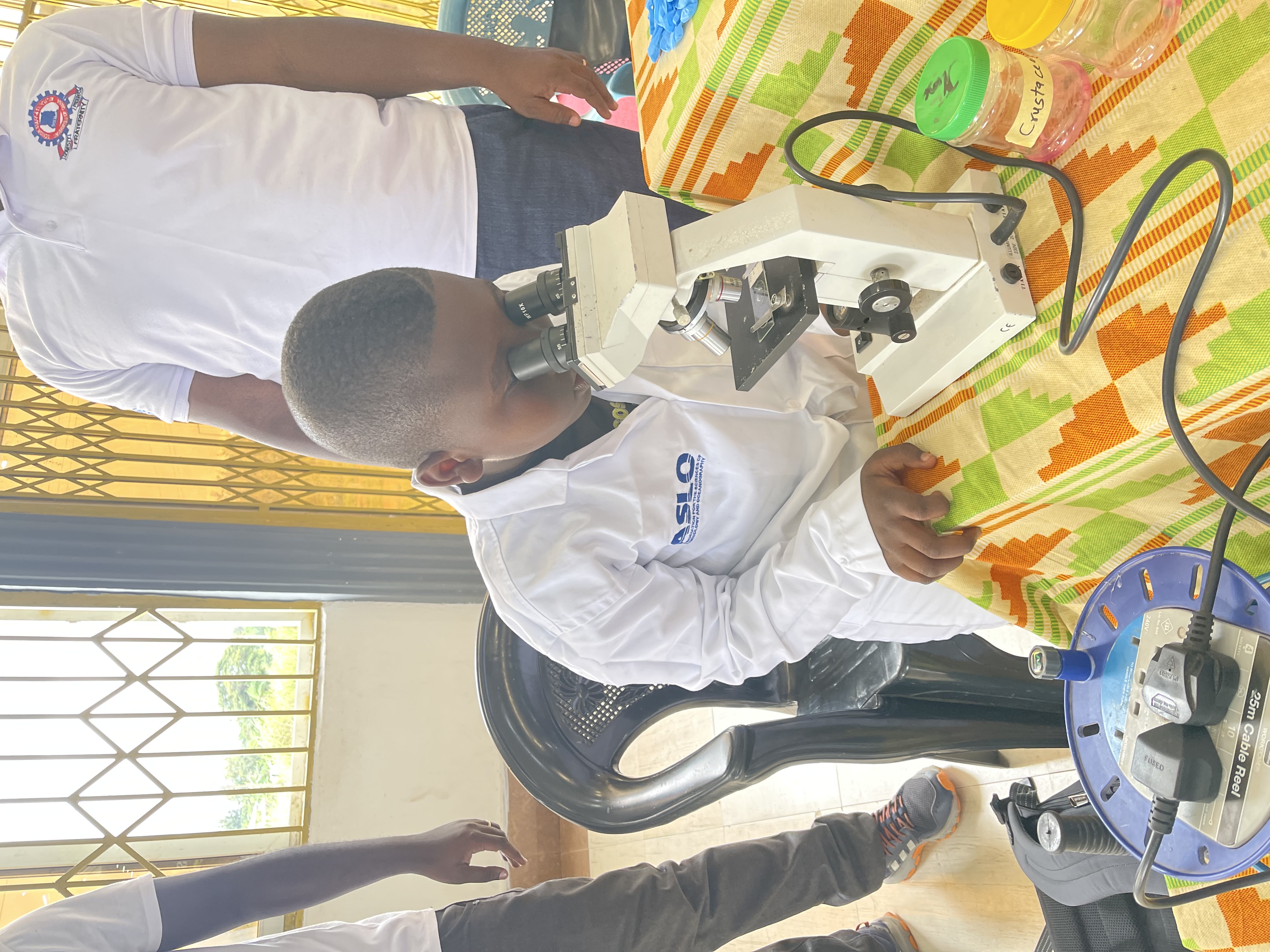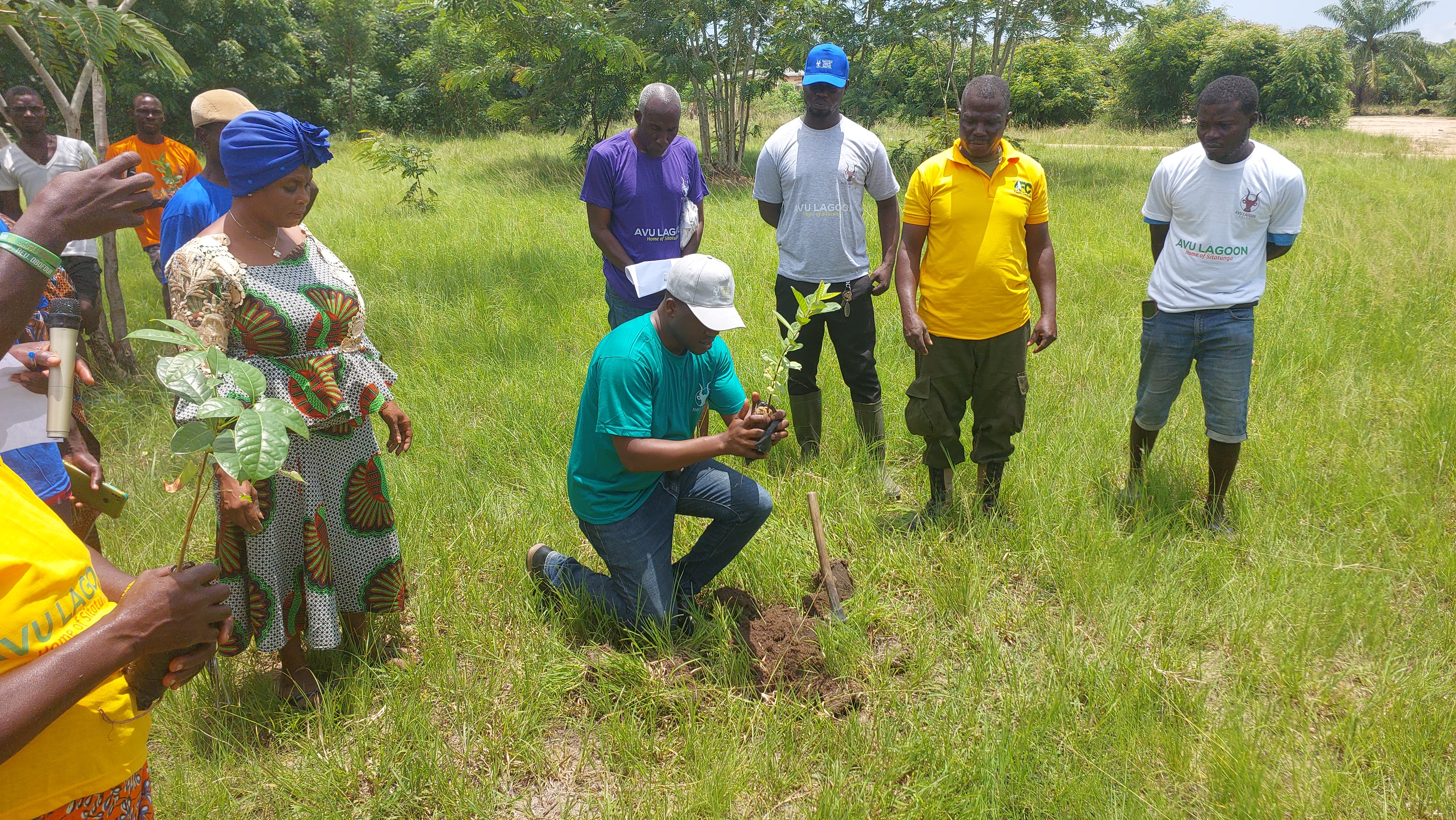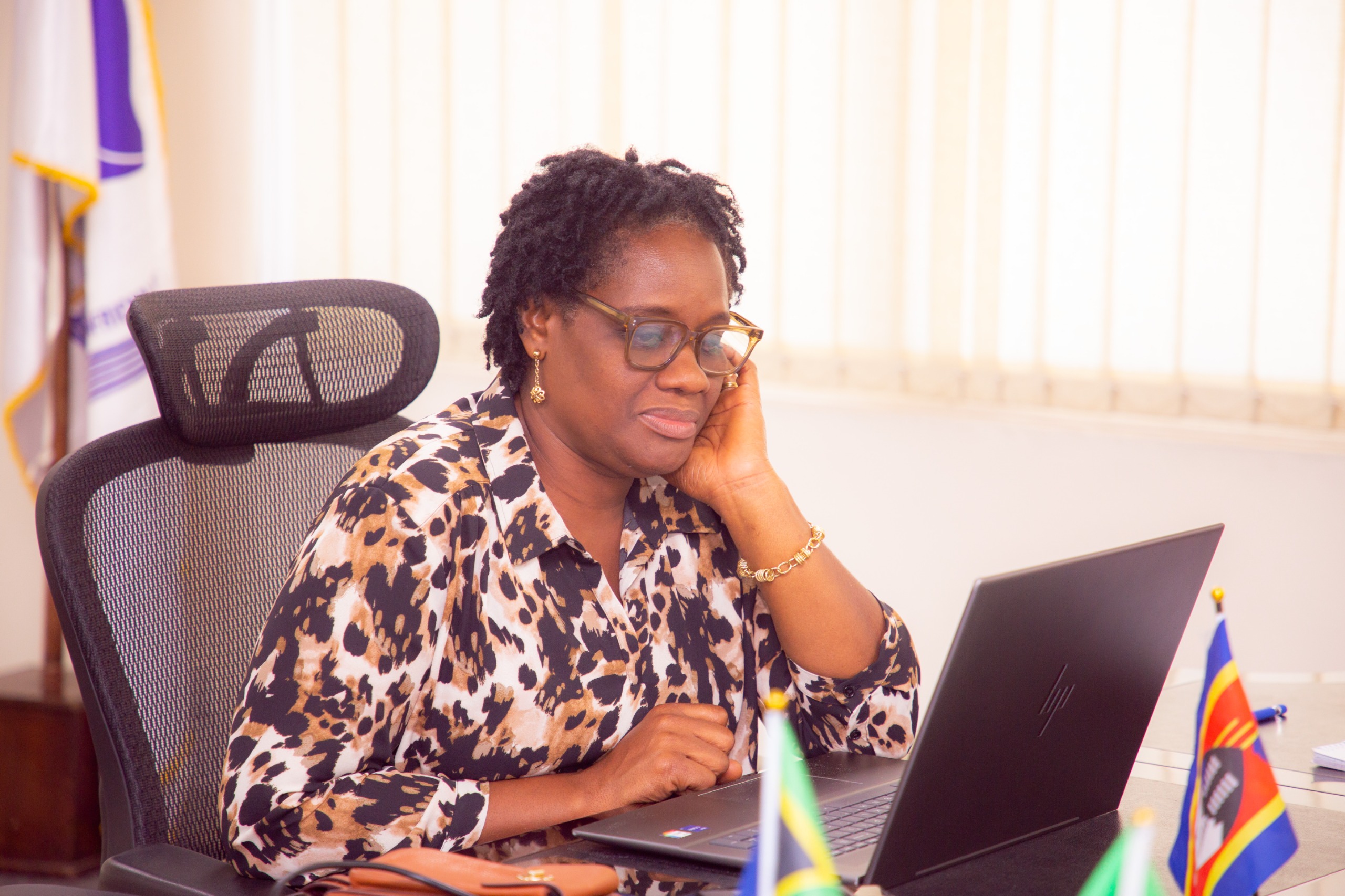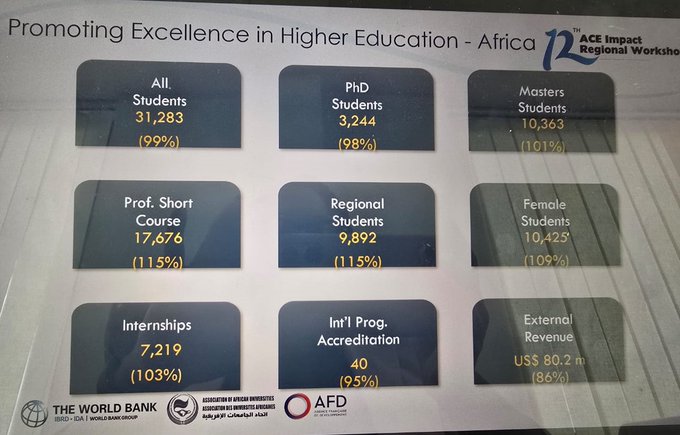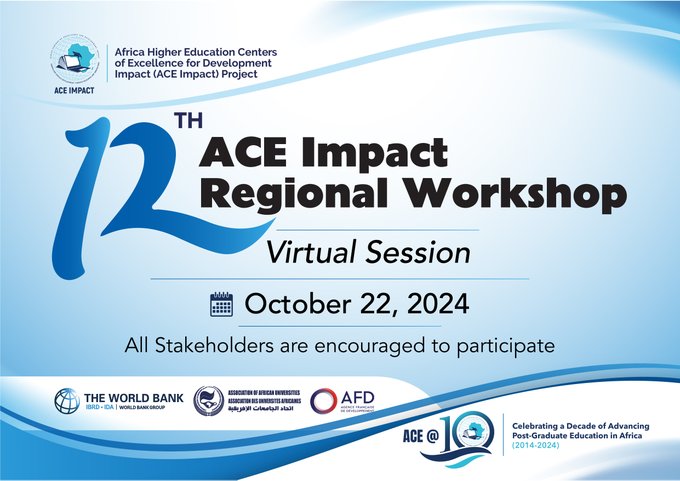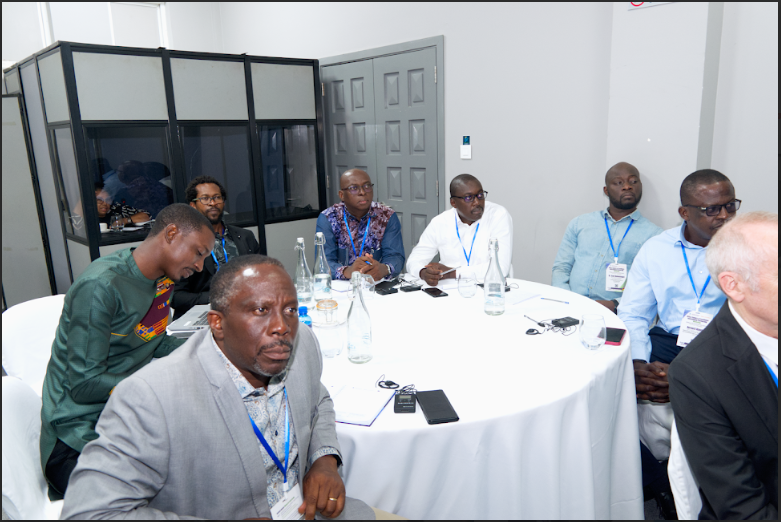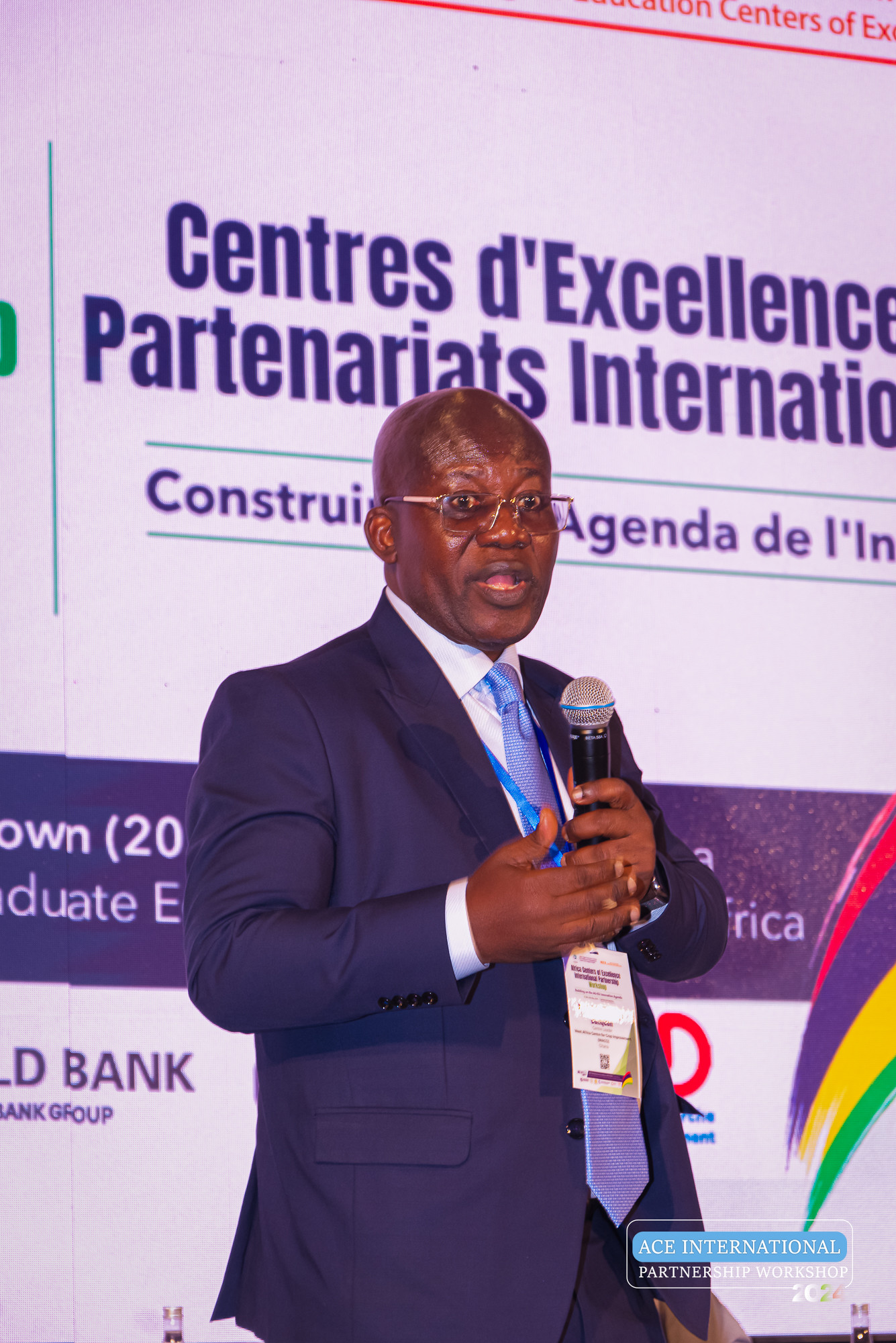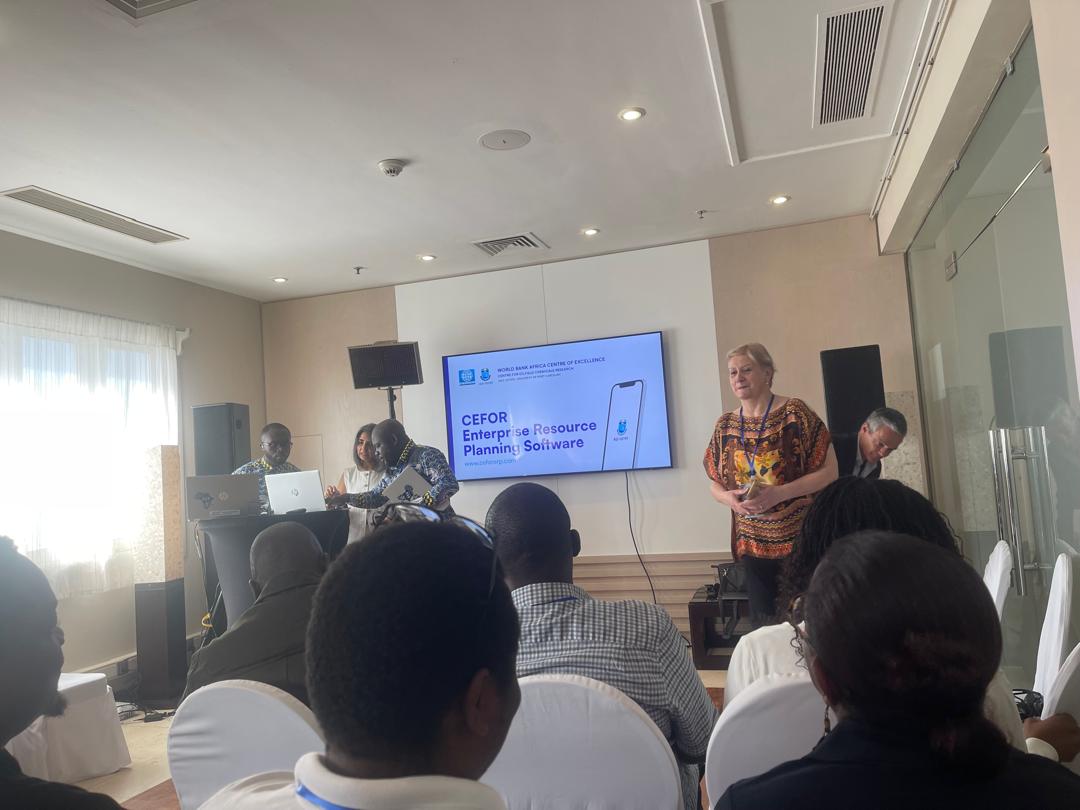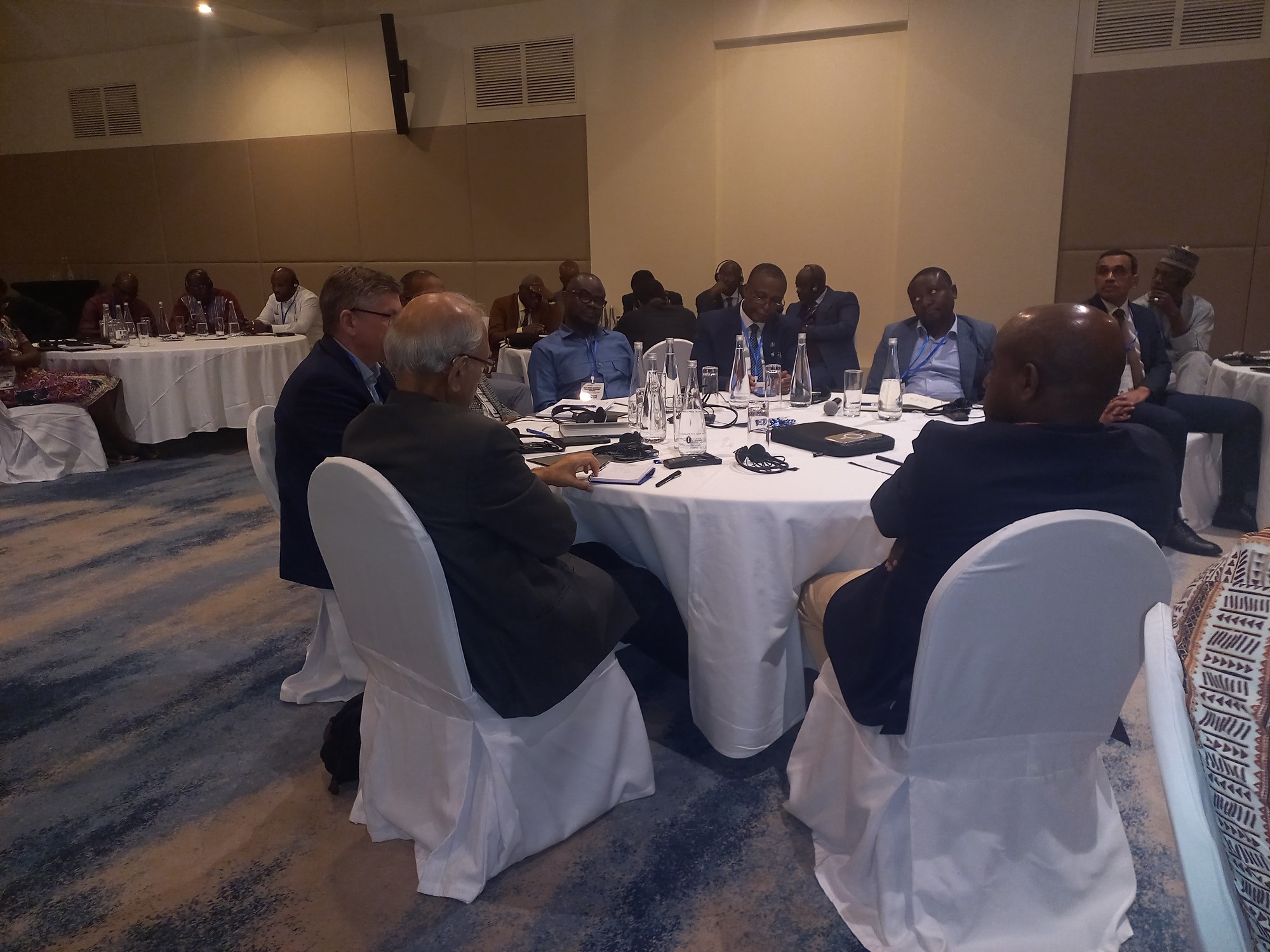The tenth anniversary of the Africa Higher Education Centers of Excellence (ACE) Program held in April 2025, offered a pivotal moment for reflection, learning, and strategic dialogue. Plenary session five reflecting on the ACE journey thus far, bringing to light the immense strides made by the program in transforming Africa’s higher education landscape over the past decade.
Dr. Halil Dundar, Education Global Manager at the World Bank opened the session by commending the program’s achievements and emphasized the importance of consolidating lessons learned to strengthen future higher education initiatives in Africa. He underscored the important contribution of the centers of excellence to Africa’s development and advancement, given their critical role in training the next generation of scientists, researchers, and professionals to tackle the continent’s most pressing challenges across various sectors including health, agriculture, STEM, energy, and mining sectors.
The session featured presentations by Dr. Sylvia Mkandawire, Senior Program Manager for the ACE Impact at the Association of African Universities (AAU), and Dr. Jude Ssebuwufu, ACE II Coordinator at the Inter-University Council for East Africa (IUCEA). They presented the key achievements, challenges, and lessons learned from the ACE journey, alongside recommendations to further strengthen future initiatives.

Key Achievements: Scaling Impact Across the Continent
The presentations by the AAU and IUCEA indicated that as part of the ACE program’s objectives to expand higher education access and inclusion, over 90,000 students have been enrolled under the program including 7,650 PhD and 30,200 Master’s students, 52,629 learners in professional short-term courses, and 26,291 regional students across borders. Notably, 29,696 of these students are women, reflecting a deliberate commitment by the program to gender inclusion and equitable access in postgraduate education.
In terms of raising quality through accreditation and infrastructure, more than 620 academic programs have been accredited through national, regional, and international bodies. International accreditation partners include the Agency for Quality Assurance through Accreditation of Study Programmes (AQAS, Germany) and Accreditation Agency for Study Programmes of Engineering, Information Science, Natural Sciences and Mathematics (ASIIN, Germany), ensuring global relevance and competitiveness. In addition, the ACE program has invested in modern learning environments, commissioning 51 new buildings with smart classrooms and digital learning tools, with nine (9) more facilities nearing completion.

The contribution of the centers of excellence to global knowledge has been impressive, with over 10,000 research publications in high impact journals with some being published in collaboration with regional and global partners. At least 400 formal research collaborations and 73 peer-reviewed articles have emerged from ACE-affiliated networks. Additionally, 61 capacity-building workshops, 52 regional network scholarships, and eight (8) start-ups have been launched through ACE support structures. Importantly, 20% of students have accessed internships or academic exchanges, built practical skills while promoting cross-border academic mobility.
Moreover, in bridging the employability gap, targeted skills training has led to notable improvements in graduate employability, particularly for students in applied and industry-linked programs. These interventions are helping bridge the critical skills gap in Africa’s key sectors, while also contributing to national and regional development agendas.

Good Practices
One of the pivotal lessons learned from the ACE initiative is the critical role of proactive policy development in supporting international accreditation. Establishing comprehensive accreditation policies with clear implementation guidelines that ensure universities are structurally prepared before beginning the accreditation journey.
Equally significant is the use of structured benchmarking exercises such as the PASET benchmarking framework. This tool has been particularly effective in preparing ACEs for international recognition by identifying performance gaps and facilitating targeted interventions.
Operational efficiency also emerged as a key success factor. Timely procurement processes contributed to meeting project timelines, avoiding bottlenecks, and ensuring the smooth rollout of program activities. Moreover, teamwork across departments and within project teams enabled division of labor, better coordination, and early completion of targets. Perhaps most importantly, institutional ownership and acceptance of the ACE initiative were essential for project sustainability. When the host universities internalized the project’s goals and took active responsibility for its execution, it fostered long-term commitment, accountability, and a culture of excellence.
Challenges and Lessons Learned
Several challenges emerged throughout the implementation of the ACE initiative, particularly around regional integration and quality assurance. Variations in national scholarship policies created inequities in student access and hindered regional enrolment targets. Immigration barriers, including delayed permit processing and policies separating students from their families further disrupted academic mobility. Additionally, tuition disparities based on nationality and language limitations discouraged outward mobility and restricted the scope of intra-African academic exchange. On the quality front, many centers struggled to meet the rigorous demands of international accreditation, with lengthy timelines.
Key Recommendations
To promote regional student mobility across Africa, a multifaceted approach is needed. Targeted awareness campaigns should be launched to emphasize the strategic value of regional exchange programs—not only in building human capital but also in fostering cross-border collaboration and shared development goals. These campaigns should showcase success stories and opportunities available through ACE programs to encourage buy-in from students, families, and institutions.
Simultaneously, immigration bottlenecks such as delays in processing study permits and restrictive travel policies must be addressed through systematic assessment and high-level dialogue with governments to ease cross-border academic movement.
Advocating for equitable regional tuition policies through entities like the African Union and Regional Economic Communities (RECs) such as ECOWAS, SADC, and EAC is essential to reducing financial barriers.
In addition, universities must proactively enhance language accessibility by establishing language support centers and offering multilingual learning resources to improve inclusion and success rates for non-native speakers.
Stronger academia-industry linkages should be incentivized through tailored reward systems that recognize ACEs successfully leveraging partnerships for applied research, co-created curricula, industrial internships, and commercialization of innovations.
Sustaining the Vision for Africa’s Knowledge Future
In conclusion, the ACE program’s impactful contributions and successes makes a compelling case for regional collaboration, policy reform, and investment in higher education as a cornerstone of Africa’s development agenda. It has proven that African universities can deliver high-quality training, produce impactful research, and shape policies that respond to the continent’s evolving needs.
About the ACE Model
Launched in 2014, the ACE Program is a regional higher education initiative supported by the World Bank in partnership with participating African governments. Building on its early successes, the program has attracted additional development partners most notably the Agence Française de Développement (AFD), which co-funds the third phase launched in 2019.
Coordinated by the Association of African Universities (AAU) and the Inter-University Council for East Africa (IUCEA), the ACE model adopts a results-based financing approach, linking disbursements to measurable results in research, teaching, and institutional development. To date, over 80 Centres of Excellence in 20 African countries have been supported, with the goal of improving postgraduate education and research in priority sectors.

